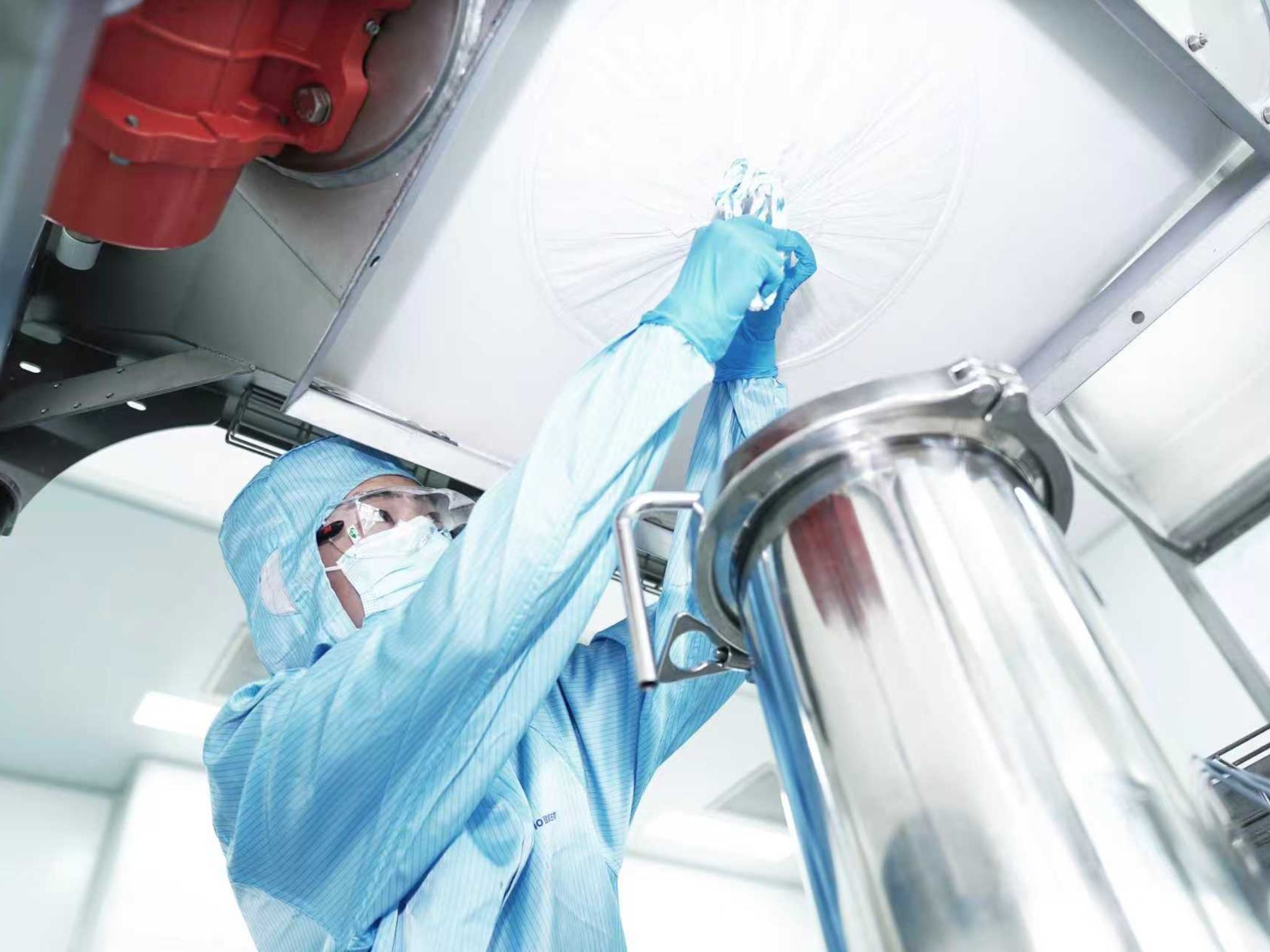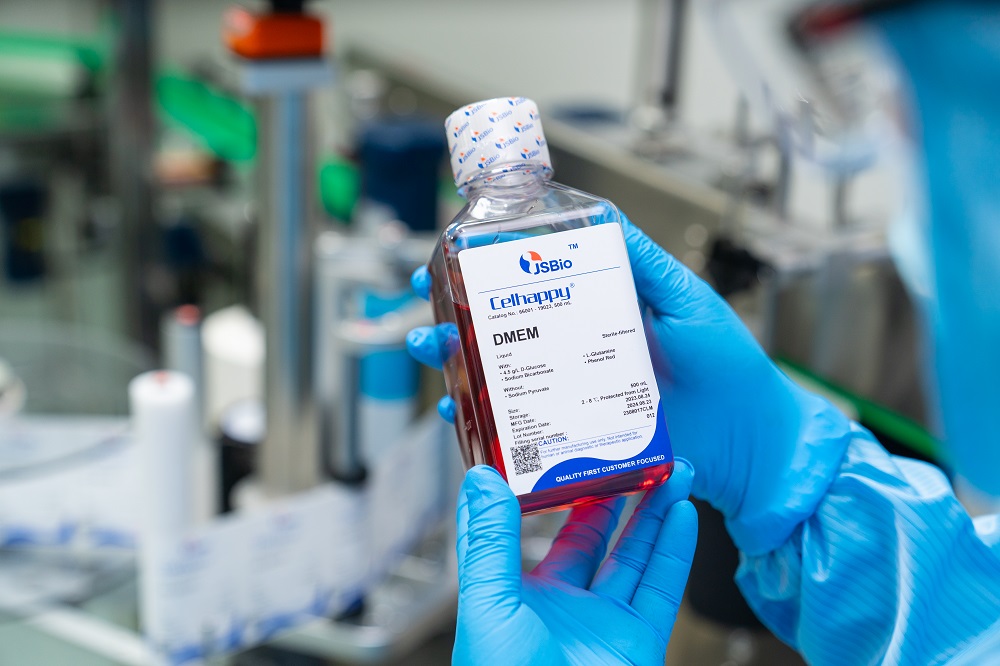
Jianshun Biosciences, a Shanghai-based culture media supplier, has expanded from biopharma to the cellular agriculture field to join China’s booming alternative protein industry.
With more patents than any other region in the world, and an ecosystem boosted by government investment, it’d be a mistake not to look at China’s alternative protein industry as anything but world-beating.
And homegrown companies are recognising the opportunity. Based in Shanghai, Jianshun Biosciences (JSBio) is one of them. The firm is a leading cell culture media manufacturer for the biopharma sector, with operations in the US and South Korea too. But now, it is building on that expertise to cater to the cultivated meat industry.
“JSBio has expanded into cultivated meat to leverage its biopharma expertise and large-scale cell culture capabilities,” founder Shun Luo tells Green Queen. “This move aligns with our mission to promote sustainable food innovation and the health of both people and the planet.”
The company will deliver serum-free formulations, food-grade components, and process development support to help cultivated meat producers scale up efficiently, with Luo describing the cellular agriculture focus as a “natural next step” from advancing human health to supporting long-term wellbeing.
Asia’s largest dry powder culture media network

Founded in 2011, JSBio has developed over 200 serum-free culture media products tailored to various cell types. Additionally, it provides process optimisation support to help businesses improve yields, maintain cell health, and scale efficiently.
In recent years, the firm has collaborated closely with trailblazing cultivated meat companies, leading to the development of its CellKey Series of culture media. This supports the unique demands of cultured meat production while incorporating food-grade components at an industrial scale.
“JSBio works with top cultivated meat companies globally, including several that have already achieved important regulatory milestones,” explains COO Louis Cheung, without disclosing the names of the companies.
“JSBio produces cell culture media from high-quality, food-grade materials,” he adds. “Dry-powder media are made with an automated pin-milling system, while liquid media use single-use preparation and terminal filtration. Each batch undergoes strict quality checks before aseptic filling and traceable delivery.”
In fact, the firm operates Asia’s largest dry powder culture media network, with an annual capacity exceeding 6,000 tonnes across several sites. This, Cheung says, positions JSBio to deliver both scale and affordability to partner companies.
JSBio’s culture media costs under $1 per litre

“JSBio integrates its services into cultivated meat production by providing end-to-end support, including food-grade raw materials, culture media at various scales, and formula optimisation to meet companies’ operational needs,” says Cheung. “Regulatory support is a core focus, with strict quality controls helping streamline approvals and accelerate market entry.”
Culture media are essential to the production of cultivated meat, entailing a mix of nutrients to facilitate the growth of animal cells. These components account for the majority of the costs involved in the entire process, and reducing this is key to reaching price parity with conventional meat.
Typically, culture medium costs hundreds of dollars per litre, thanks to expensive animal inputs like bovine serum albumin and fetal bovine serum, as well as growth factors and basal media (such as amino acids, vitamins, and glucose).
Globally, more and more cultivated meat companies are shifting to serum-free media formulations to drive down production costs, with US startup Clever Carnivore bringing this to just $0.07 per litre at pilot scale.
“Media remains a major cost driver in cultivated meat production. We work to understand what cells truly need, streamline formulations, secure cost-efficient raw materials, and enable processes like high-temperature-short-time (HTST) sterilisation – and that’s just a glimpse of how we help partners scale cultivated meat more cost-effectively,” says Cheung.
“For existing cultivated meat clients, JSBio offers culture media at less than $1 per litre,” he adds. “As we expand our supply chain and adopt new technologies to boost productivity, we anticipate further reductions in cost.”
China embraces cultivated meat

With its expansion into cellular agriculture, JSBio has joined the APAC Society for Cellular Agriculture to build strategic partnerships and drive regional innovation.
“JSBio is among the most capable players in Asia for culture media innovation and scalable bioprocess support,” said program director Peter Yu. “With their regional leadership and solid expertise, JSBio will help global players scale efficiently in Asia and advance commercialisation.”
The company’s shift towards cultivated meat comes amid growing public acceptance and government backing for these proteins. A recent survey found that 77% of citizens in Beijing, Shanghai, Guangzhou, and Shenzhen are open to trying cultured meat, and 45% are likely to replace conventional meat and seafood with these.
Meanwhile, the current five-year agriculture plan encourages research in cultivated meat, while the bioeconomy development strategy aims to advance novel foods. China is already home to eight of the top 20 patent applicants for these novel proteins.
This year, the country saw its first alternative protein innovation centre open in Beijing, fuelled by an $11M investment from public and private investors to develop novel foods like cultivated meat. And in the Guangdong province, officials are planning to build a biomanufacturing hub for plant-based, microbial and cultivated proteins.
At the annual Two Sessions summit, top government officials called for a deeper integration of strategic emerging industries like biomanufacturing, and the agriculture ministry outlined the safety and nutritional efficacy of alternative proteins as a key priority. And a document signalling China’s top goals for the year underscored the importance of protein diversification, including efforts “to explore novel food resources”.
The post Shanghai’s JSBio Expands Into Cultivated Meat to Tap China’s Future Food Opportunity appeared first on Green Queen.
This post was originally published on Green Queen.